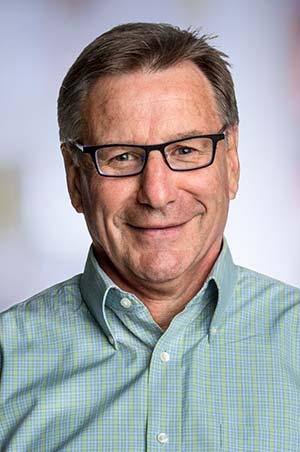Stanley Riddell, MD
Professor
Translational Science and Therapeutics Division, Fred Hutch
Member
Immunotherapy Integrated Research Center (IIRC), Fred Hutch
Member
Pathogen-Associated Malignancies Integrated Research Center (PAM IRC), Fred Hutch
Dr. Stan Riddell is a world leader in developing immunotherapies, which harness the power of the immune system to fight cancers and dangerous infections. His research focuses on detailing the complex biology of immune cells called T cells and pioneering therapies that use genetically reprogrammed T cells to specifically recognize and destroy diseased cells. These therapeutic T cells zero in on specific protein targets known as antigens, using either natural molecules called T-cell receptors or synthetic molecules called chimeric antigen receptors. Chimeric antigen receptors, also known as CARs, combine elements from T-cell receptors and from other immune cell-produced antibody molecules. His team’s breakthroughs are helping researchers make progress for patients who need better therapies.
Other Appointments & Affiliations
Member, Translational Data Science Integrated Research Center (TDS IRC), Fred HutchMember
Translational Data Science Integrated Research Center (TDS IRC), Fred Hutch
Professor, Division of Hematology and Oncology
University of Washington School of Medicine
Education
Fellow, Hematology, University of Manitoba, 1985
Resident, Internal Medicine, University of Manitoba, 1983
MD, University of Manitoba, 1979
Clinical Expertise
Dr. Riddell is an expert in using hematopoietic (blood-forming) stem cell transplantation (HCT) to treat patients with leukemias, lymphomas and other blood-related cancers, and in treating graft-versus-host disease (GVHD) that can occur when a donor’s immune T cells attack normal tissues as well as the malignancy. Based on his extensive clinical experience and laboratory investigations, Dr. Riddell has developed innovative therapies that use T cells to treat various viral infections and cancers. He was the principal investigator on the first human trial of transferred therapeutic T cells, to prevent dangerous cytomegalovirus infections after HCT, and on four subsequent clinical trials of ‘adoptive’ T cell therapy, including the first using leukemia-reactive T cells to treat relapsed leukemia post-transplant and the first using CAR-engineered T cells of defined subset composition.
Research Focus
Dr. Riddell’s early studies demonstrated the potential to augment T cell immunity by the adoptive transfer of antigen-specific T cells and uncovered mechanisms by which virally-infected cells evade immune recognition. These findings provided insights into similar mechanisms that tumors use to escape T cell immunity and that might be therapeutically targeted to improve patient outcomes. More recently, the Riddell team identified the subset of T cells that can best survive and function after transfer to patients and found that using clearly defined combinations of T-cell types can make the therapy even more effective. They have developed critical techniques for the isolation, expansion, genetic modification and reinfusion of therapeutic T cells, and for monitoring patient safety as well as T cell persistence, migration and function post-infusion. Many of these powerful methods are now broadly used in developing adoptive immunotherapies, including state-of-the-art ways to identify the tumor antigens recognized by T cells and to rapidly multiply the number of disease-fighting T cells.
Current Laboratory Projects
Dr. Riddell’s research group continues to make new discoveries to enable the development of effective T cell therapies for more patients. They are:
- Detailing the mechanisms involved in the beneficial anti-cancer effects of donor T cells versus their role in potentially dangerous GVHD, and addressing these processes to increase the safety and relapse-preventing efficacy of HCT,
- Using clinical samples and animal models to dissect how cancers can evade T cell immune responses and evaluate strategies to achieve effective antitumor immunity by overcoming immune evasion,
- Identifying tumor antigens that can be recognized by T cells and developing engineered TCRs or CARs using emerging principles of synthetic biology, and
- Elucidating intrinsic T cell properties that are important for effective adoptive T cell therapy, including qualities of particular T cell subsets.
"We’re at the starting line—but I think we’re at the starting line where we know that we’re in a race that we actually can win."
— Dr. Stanley Riddell
